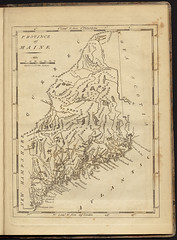 The Medicaid program in Maine is full of difficulties. The state has a history of asking the federal government for waivers from certain portions of the Affordable Care Act, some of which result in changes to Medicaid. The Medicaid program in Maine is not as robust as the programs in other states, but it does still exist.
The Medicaid program in Maine is full of difficulties. The state has a history of asking the federal government for waivers from certain portions of the Affordable Care Act, some of which result in changes to Medicaid. The Medicaid program in Maine is not as robust as the programs in other states, but it does still exist.
Medicaid is a public, or government run, form of health insurance. It is designed to cover individuals and families who are low income and who cannot afford to purchase a health plan from a private insurance company. Medicaid is funded, in part, by the federal government. It is also funded by the government of an individual state.
In Maine, the Medicaid program is administered by the Department of Health and Human Services. It is called MaineCare. Financial eligibility for MaineCare is determined by Family Independence, which is an office of the Maine Department of Health and Human Services.
No specific information about the eligibility requirements for MaineCare are listed on the state’s website. They do have a long list of things you will be asked to provide proof of when you apply for MaineCare.
Maine has a history of requesting waivers from the federal government that would allow the state to avoid complying with portions of the Affordable Care Act. In March of 2011, Maine requested a waiver from the medical loss ratio. The medical loss ratio requires all private health insurance companies to spend at least 80% of the money they get from premiums on things that will improve the health care of their customers. Maine was allowed a waiver, which means private insurers in their state only have to spend 65% of premium money on health care related things.
The federal government allowed this because it was feared that MEGA Life and Health Insurance company, one of the biggest private insurers in Maine, would leave the market if the company had to comply with the medical loss ratio. This would destabilize the individual health market in Maine. The waiver will last for three years, and will expire in 2014.
Currently, the governor of Maine, Republican Paul LePage, (who is backed by the Tea Party), is trying to change the financial eligibility requirements for Medicaid. Maine used to cover parents making up to 200% of the federal poverty level. It now restricts eligibility to parents making up to 133% of the federal poverty level.
Governor Paul LePage has declared that he will not expand Maine’s Medicaid program. Instead, he plans to limit eligibility for seniors, for people who are disabled, and for young adults. He wants to remove all people who are 19 or 20 years old and who are not parents from Medicaid coverage. He wants to cut seniors and people who are disabled from the Medicare Savings Program, which is part of Medicaid.
LePage also filed a lawsuit to try and force the federal government to allow him to cut back his Medicaid program. He wants to move eligibility back to the actual federal poverty level and no higher. It was dismissed. Federal law prevents states from reducing Medicaid coverage before 2014.
Image by Normal B. Leventhal Map Center at the BPL on Flickr

